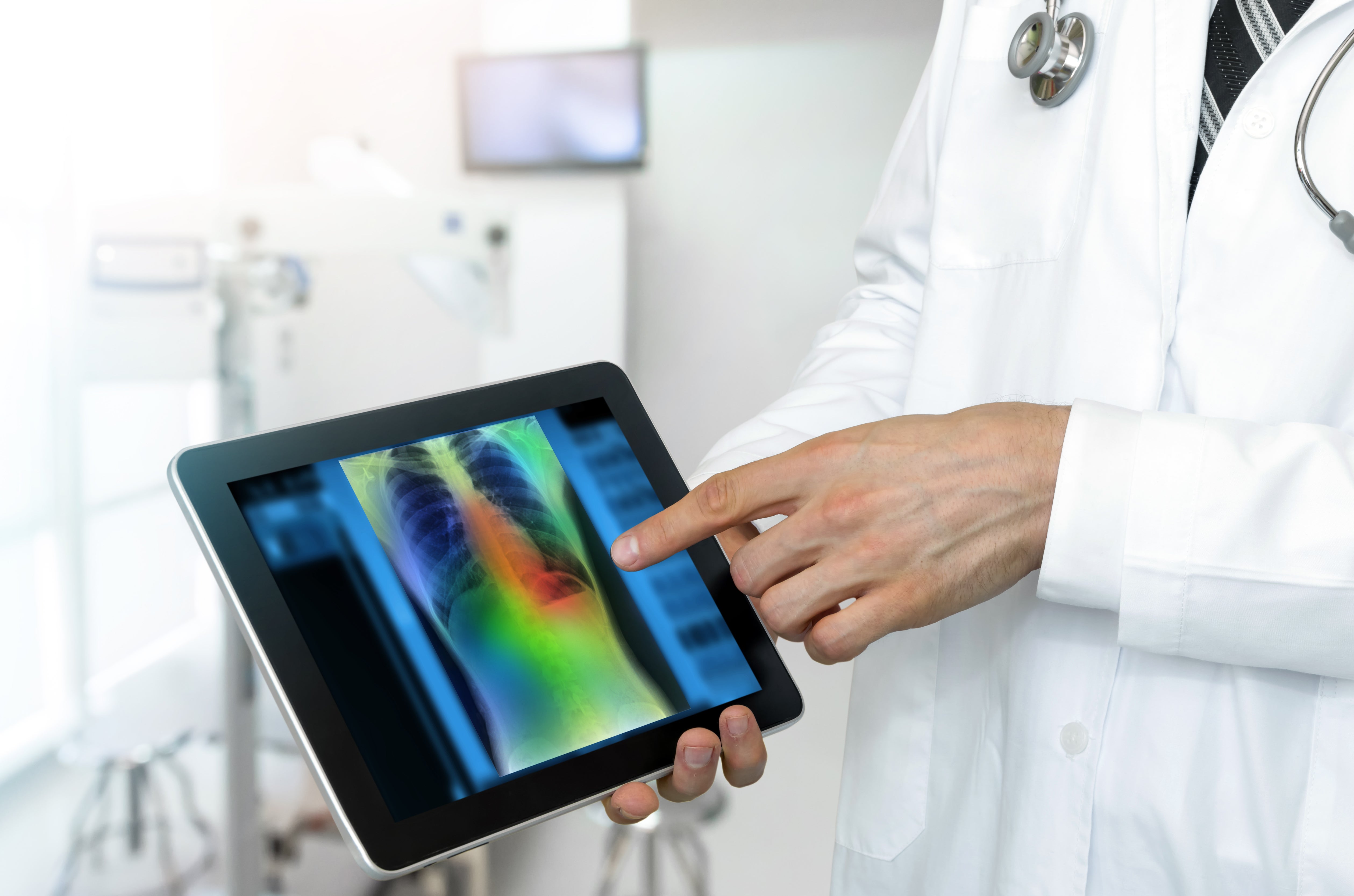Change Is Coming: Artificial Intelligence Is All Set To Disrupt The UAE Healthcare Sector The world is watching the Emirates when it comes to the future of healthcare– after all, it's hard to think of a sector that is growing more quickly with more technological advances.
Opinions expressed by Entrepreneur contributors are their own.
You're reading Entrepreneur Middle East, an international franchise of Entrepreneur Media.

The UAE is all about innovation. So, it follows that the world is watching the Emirates when it comes to the future of healthcare– after all, it's hard to think of a sector that is growing more quickly with more technological advances, or a country that has taken more bold steps across so many industries.
One of the key areas of advancement in healthcare is, of course, artificial intelligence (AI), which refers to intelligent applications that assist with diagnosis of disease, treatment recommendations, as well as data management, improving online consultations, speeding up drug development, and improving doctor and medical student training.
The UAE is positioned to be the region leader on this, having already made huge strides in accumulating the knowledge, finances, and tools required to incorporate AI into daily healthcare practices. Let's take one example: the Dubai Future Foundation has invested millions into AI development initiatives, such as the UAE AI and Robotics Award for Good, which asks applicants from across the globe to develop and submit advanced uses for AI in healthcare. Furthermore, tech startups have soared in number in the Middle East and North Africa (MENA) region since 2010, and the UAE is leading the way– securing 50% of all MENA tech funding between 2014 and 2017.
This makes one thing clear: the future of AI in the UAE's healthcare system is bright. So, here's a look at what the future may hold when it comes to the use of AI in the nation's health industry.
1. UNDERSTANDING DATA
The move from paper to digitalized medical records over the last two decades has undoubtedly improved the efficiency of hospitals and clinics across the UAE. But in doing so, it has generated enormous amounts of data– data that continues to grow at a rapid rate each year. In fact, reports estimate that the amount of data created and copied globally doubles in size every two years and will reach 44 trillion gigabytes by 2020.

A case in point is the AI-focused project Google Deepmind Health, which is currently running in the UK. In this project, data is being mined from the medical records of patients. The aim? To ensure patients are diagnosed and treated more quickly and accurately than ever before.
2. DIAGNOSING DISEASE
AI-based disease diagnosis is already in progress. In 2017, US researchers published findings that showed that machine learning platforms can be taught to diagnose skin cancer after processing hundreds of thousands of images of different types of skin cancer. When pitted against human dermatologists, the machines demonstrated a comparable level of accuracy.
Overall there is more than 60 startups exploring AI projects only in healthcare. In the future, patient tissue samples can then be cross-matched against databases to identify cancer at a very early stage, which will translate the AI application into a cancer screening tool. And in a worldwide first, in 2017, the US Food and Drug Administration (FDA) approved an AI-based medical imaging platform called Arterys for clinical use. The platform uses AI to understand how the heart works with each new case it examines. The ultimate goal is to automate heart disease diagnosis.
3. TELEMEDICINE
Treating patients remotely is already part of the UAE healthcare landscape, with online and app-based medical consultations growing increasingly common. While these consultations still take the format of a video call with a real-life physician, AI is now allowing machines to take the lead via chatbots. When the AI-based app is used, the patient tells the app the symptoms he or she is experiencing. These are then cross referenced with a vast database of disease symptoms and signs to determine a diagnosis and whether a hospital visit is required. Solutions like this mean that patients can receive accurate medical care more quickly than in previous years, which in turn takes the pressure off healthcare systems.

As mentioned, the UAE is developing the talent for tech specialists to work and establish companies in the UAE. The next steps to successfully incorporate AI into the UAE's healthcare system is the development of clearly-defined ethical standards for the use of AI in healthcare. As we move into a new realm of healthcare, both clinicians and software companies will have to prioritize the safeguarding of patient data to ensure it is never used in non-health related capacities, that confidentiality is always maintained, and data is never passed to third parties without patients' consent.
A regulatory framework will need to be developed to achieve this, and training on best practice will have to be provided for health professionals. Finally, patients themselves will also need to be educated about AI, its advantages, limitations, and applications, while being reassured about the protocols that have been put in place to keep their personal information safe. The gradual introduction of AI into daily living is already occurring through smartphone operating systems and apps.
Healthcare providers can now build upon this by adopting user-friendly interfaces that are similar to those that members of the public are already used to. This should ensure they embrace, rather than fear, the increasing presence of AI in healthcare. The recent appointment of the country's first Minister for Artificial Intelligence also suggests the UAE is focused on tapping into the benefits offered by using AI in medical research. While AI will certainly impact research and training standards, it could also revolutionize drug development– speeding up a process that currently takes at least a decade and costs around US$2.6 billion per successfully developed drug.
Another key healthcare area that stands to gain much from AI is the training of doctors and medical professionals. With AI, computer algorithms could make adjustments to the types of questions that are asked to take into account the differences between trainees. In fact, AI can take its cue from a large database of different medical scenarios, adapting to different trainees, and learning from previous responses. This allows it to meet the individual needs of medical students and could make exams reflect more accurately the types of situation that doctors would face in a real clinic.
The immediate future
With recent survey results suggesting that two-thirds of the Middle East's public are happy to see AI systems being used in healthcare, I am sure new doctors with the ability to use AI tools will replace the old doctors who don't use these AI techniques. It's a change that the UAE's consumers seem ready for– even though many may not realize the full potential of AI in healthcare.
But with so many potential applications for AI on the horizon, what can we realistically expect to see in UAE hospitals and clinics in the near future? While only time can truly tell, the work of home-grown companies points towards AI-based screening of diseases like cancer as a fast-approaching change. And with the development of chatbots that permit quick at-home clinical assessments and diagnoses, it's likely that this service may also become more widely used in the UAE in the very near future. Regardless of which applications are first to market, it is undeniable that change is coming- and that means it's a very exciting time for the healthcare industry.











